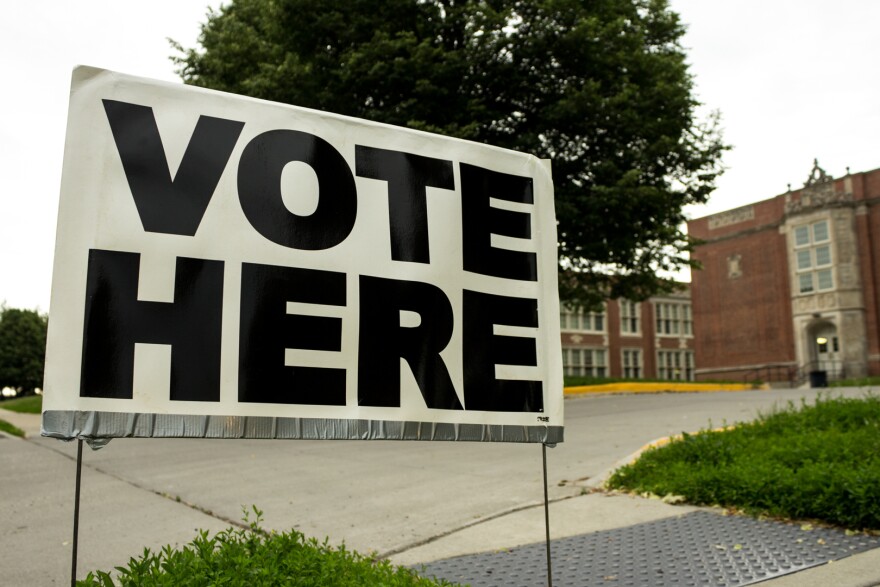Secretary of State Paul Pate says his office is continuing to work on ways to fix and prevent errors in Iowa’s list of people who are barred from voting because they have been convicted of felonies.
Iowa is one of two states that permanently disenfranchise all people with felony convictions unless they petition the governor to have their voting rights restored.
The Des Moines Register has found some Iowans’ ballots were thrown out because they were wrongly identified as felons, and that the state was aware of problems with this system for several years. This summer, the Brennan Center for Justice and the League of Women Voters of Iowa warned Pate that these errors appear to violate federal law.
Pate said last week he is putting together potential fixes to share with lawmakers “within the next few weeks.” Details of the plan haven’t been made public.
“It’s kind of like a menu—here’s what we can do, here’s what some of those projected costs are—and then the legislature and the governor’s office will have something to say about what pieces they’re going to fund,” Pate said.
Pate has been saying for months that he is working on administrative rule changes to ensure the court system is transmitting correct information about felony convictions to his office, and then to county auditors. It is not clear when that proposal will be made public.
Brennan Center attorney Eliza Sweren-Becker said she ultimately got a response to her June 13 letter in the form of a phone call from the secretary of state’s office in early October. She said a lawyer for the secretary of state mentioned the proposed administrative rule change, and Sweren-Becker was under the impression she would get to see the proposal around mid-October. She said she has not seen it yet.
“We’re watching this issue very closely,” Sweren-Becker said, adding she wants to ensure that all eligible adults are able to vote.
Other problems with the felon voter list appear when felony convictions occur in other states. Pate said there is no guarantee that information makes it onto the state’s list. The Des Moines Register also found that people with felony convictions in other states that restored their voting rights have been blocked from voting in Iowa.
Pate said his office has spent a lot of time on this issue.
“We’ve made a lot of significant steps already,” Pate said. He said his office has been going through the list of about 70,000 people to make sure it’s accurate.
In February, the state court administrator issued a directive to clerks of court with the goal of providing “a quality assurance system” to “avoid data entry errors that could lead to loss of voting privileges.”
But the letter from the Brennan Center and LWVIA detailed seven steps the state of Iowa should take to ensure they don’t violate federal voting law in the future, and it’s not clear if Pate’s plans would satisfy all of those points.
Meanwhile, Gov. Kim Reynolds is advocating for a constitutional amendment that would automatically restore voting rights to those with felony convictions who complete their sentences. Senate Republicans blocked the proposal earlier this year over discomfort with the definition of a completed sentence.
Some Democrats and the Iowa-Nebraska NAACP are urging Reynolds to sign an executive order to immediately restore felon voting rights.
Instead, Reynolds has taken steps to simplify the process by which people individually apply to her to get their voting rights restored. She has said she is planning to push for the constitutional amendment again in 2020.
Note: This story has been corrected to reflect that Iowa is one of two states that permanently disenfranchise all people with felony convictions unless they petition the governor for voting rights restoration. The story previously stated that Iowa is one of two states that does not automatically restore voting rights to people with felony convictions who complete their sentences.





